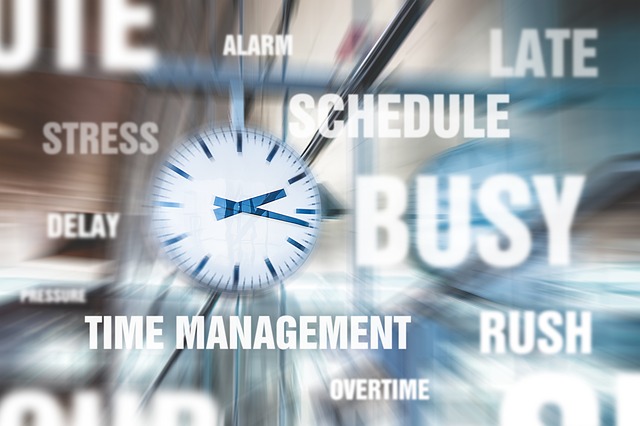
Trying to have a lively social life while juggling our work demands can be very challenging. If our lives feel like all work and no play, our social lives aren’t all that’s at stake. A poor work-life balance can negatively affect our health and well-being.
I work full-time as a copywriter for an advertising agency. While agency life can be a fun and creative atmosphere, it’s also a place where employees tend to work long, unpredictable hours. I’m not typically a flaky person, but I’ve had to postpone dinner plans or even cancel on friends at the last-minute because I was up against a deadline. This led me to the point of avoiding making plans during the week because I’m either worried about having to cancel or too tired after a long day.
On top of the blow to my social life, my job can be stressful at times. Working on a product launch in the wonderful world of advertising is on a whole new level of crazy. Meeting deadlines can mean working through your lunch break and having to push through all hours of the night while completely exhausted. My worst experience was having to work until 3:45 am, while some of my coworkers have had to stay until 5:30 am to get a project done. I should also mention, we were expected to come back into the office in the morning bright-eyed and bushy-tailed, ready to tackle the next challenge. Working under these conditions can really take a toll on you— believe me, I speak from experience.
Chronic stress puts us at a higher risk for:
- Anxiety
- Depression
- Digestive problems
- Headaches
- Coronary heart disease
- Sleep issues
- Weight gain
In addition to these health risks, our performance and productivity can suffer when we’re overstressed and overworked. We’ll have a harder time concentrating, so we’re more likely to make mistakes. We may also feel irritable and snap at others, which can cause problems in our professional and personal relationships. That’s why it’s so important to maintain a healthy work-life balance where we’re able to relax, recharge, and get enough sleep to properly function.
Here are a few ways to help you create a better work-life balance:
Set realistic goals and prioritize
Make a to-do list and tackle essential tasks while eliminating ones that aren’t a priority. It’s best to take on one task at a time because tackling too many things at once can actually be counterproductive. If you’re facing a big project, try completing the smaller ones first to get those out-of-the-way.
Take breaks
We all need time to recharge. If you’re too busy to take a full one-hour lunch break, try at least getting up from your desk to take a walk and clear your head.
Even simply breathing can help reduce stress. Take a few moments to close your eyes and focus on breathing in through your nose for a count of three and out through your mouth for a count of five. Repeat this five times and see how you feel.
Ask for flexibility
To create a better work-life balance, some companies are offering their employees flexible hours or the option to work from home. For example, you can ask your supervisor if you can work from 8 am to 4 pm instead of your regular 9 to 5 hours or request to work from home 1 day a week.
Unplug
In this technology-obsessed era, we’ve become accustomed to being accessible 24/7. In fact, a study found that more than 50% of people check their work email on the weekends and 34% check email on vacation.
We should try to leave work at work when possible. That means resisting the urge to check your emails when you’re outside of the office. Remember, you deserve some time to yourself.
Be good to your body
Regular exercise can help reduce stress, anxiety, and depression as well as boost our immune systems. That’s why it’s essential to set aside time to exercise. You can try working out before work, which is what I do when I know I can’t make it to the gym at night. It’s a great way to start your day and it gives you an extra boost of energy! Even if you feel like you have no free time, try at least fitting in a 10-minute workout—that still reaps some benefits.
On top of exercise, be sure to maintain a healthy diet and get enough sleep (7 to 9 hours is the recommended range).
Take time off
If your company offers you time off, take it—without feeling guilty. We all need a vacation from time to time. You don’t even need to book a trip. I’m a huge fan of staycations, myself. And remember what I said before, when you’re on vacation, that means no emails, no phone calls, nothing work-related. Just relax and enjoy.
Ask for help
If you’re feeling overwhelmed, don’t be afraid to get the support you need. You may be able to delegate a project to someone to lighten your workload. If you were assigned a project that you feel has an unrealistic deadline, be sure to speak up and ask for the time you need. Otherwise, you may push yourself to extremes to get it done at the cost of your quality of work and possibly your sanity.
If stress is becoming a big issue in your life, it may be time to talk to a therapist to help you cope with it.
While our careers are very important, so is our health and well-being. Work shouldn’t consume our lives. When we start to feel like it does, that’s when it’s time to do everything we can to regain balance. We need to take time to enjoy our personal lives, take proper care of ourselves, and nurture our relationships with family and friends.
[ctt template=”4″ link=”Yu50C” via=”no” ]“Don’t get so busy making a living that you forget to make a life.” ~Dolly Parton [/ctt]





No Comments